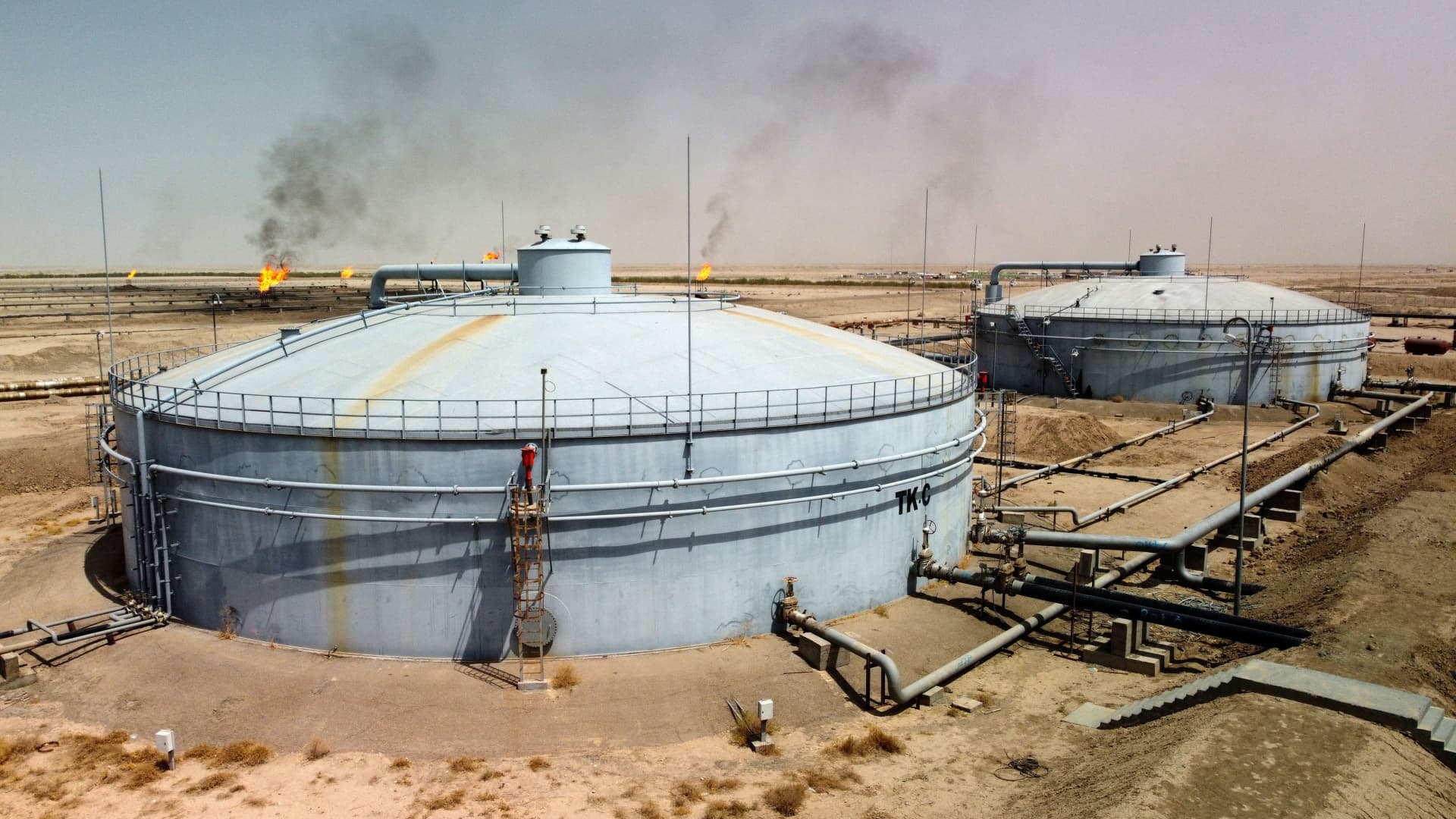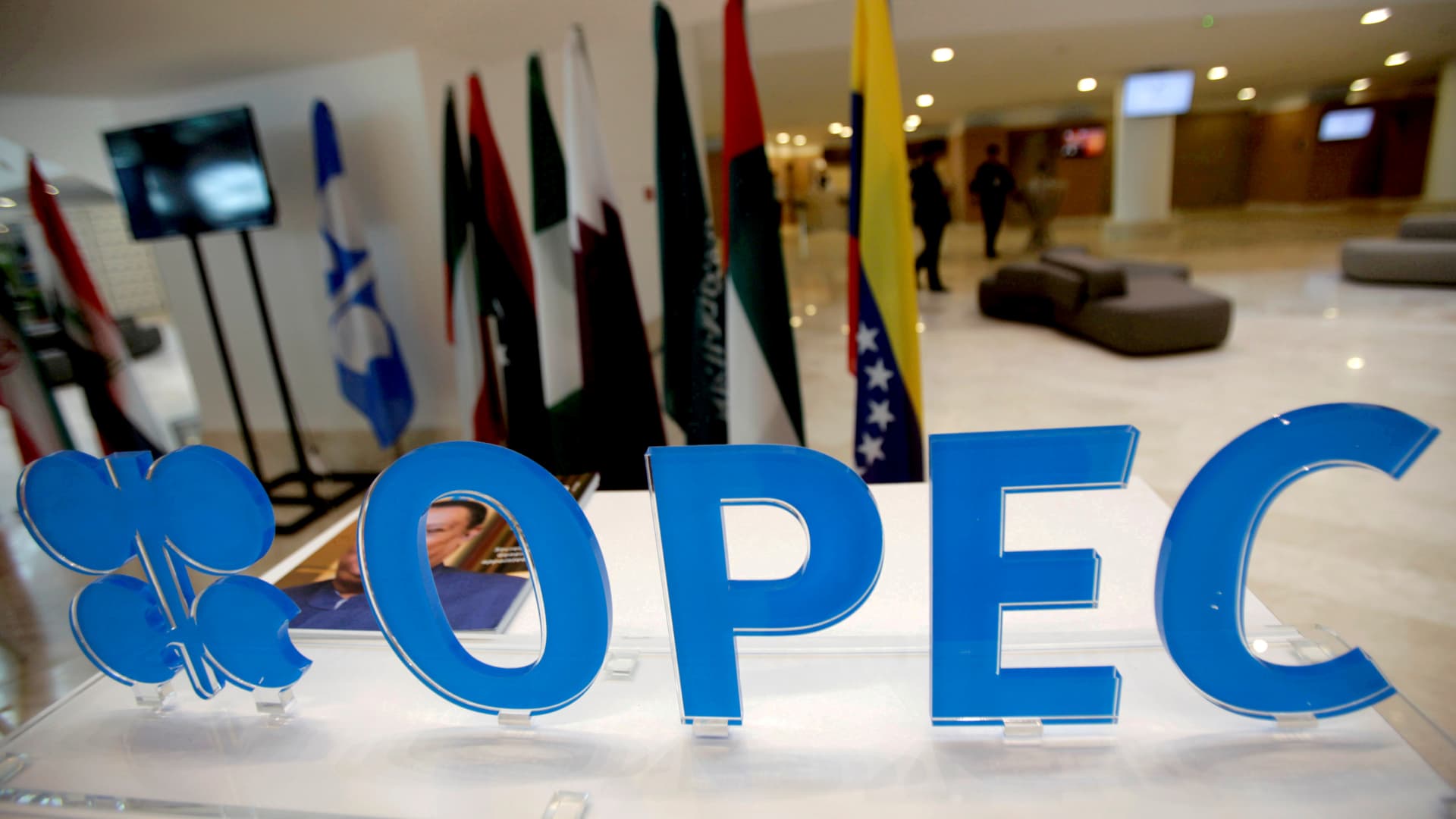Iraq’s ‘extraordinarily toxic’ turmoil is a considerable risk to the oil market, say analysts


Iraq’s political turmoil could pose a significant risk to global oil markets, analysts told CNBC.
“While Iraqi production is usually fairly resilient to unrest, the current political environment is extraordinarily toxic and poses a considerable risk to the oil sector,” said Fernando Ferreira, a director at Rapidan Energy Group.
Those concerns come on the heels of escalated protests in Iraq on Tuesday, after powerful Shiite Muslim cleric Muqtada al-Sadr announced his resignation from politics.
Recurring risk
While risks of disruption to oil supplies has subsided after Sadr called for calm, Ferreira cautioned that the power struggle between Shia factions in the country is far from resolved, and that civil unrest in Iraq will remain a recurring risk to oil markets.
“Prices could rally $5-10 on Iraqi disruptions, possibly more as low liquidity is driving bigger swings than usual,” he projected.
In a global oil market already strained by low oil inventories and key OPEC members failing to meet quota commitments, slips in Iraqi oil production could be significant, said Timothy France, a senior oil market analyst at Refinitiv.
“Even partial declines in Iraqi oil output and exports may have a significant upward impact on crude benchmark prices in Asia and Europe,” France said.
According to OPEC, global demand for oil is estimated to average 100.8 million barrels per day in 2022. Iraq produces around 4.5 thousand barrels of oil per day, and current export volumes represent approximately 3.5% of global demand, according to data from Refinitiv.
“The unrest we’ve seen in recent days has been mostly concentrated in Baghdad and southern Iraq, which exports 3.3 thousands to 3.4 thousand barrels of oil per day — a little over 3% of the global market,” France added.
China and India
Physical supplies of oil in the Chinese and Indian markets will be acutely affected by a decline in Iraqi crude oil exports, France told CNBC in an email.
“China and India are top importers of Iraqi crude oil, receiving an estimated 797,000 bpd and 817,000 bpd in August,” said France.
Ferreira added that growing unrest could also bring more caution to the OPEC+ decision-making processes. The group, whose members comprise OPEC, Russia and allied producers, is set to meet on Sept. 5.
“[The unrest may] encourage ministers to defer making adjustments to production quotas until there’s more clarity on the direction of geopolitical risks threatening the oil market,” he said.
No major disruptions yet
Despite the cautionary figures, both analysts said there are no major disruptions to Iraqi oil output as yet. “Iraqi crude oil exports have averaged 3.53 million barrels per day. Weekly data export shows no sign of a slowdown,” said France. “Tankers are currently [still] loading at Basrah Oil Terminal.”
“Refinitiv’s historical export data shows no major export outages at the Basrah Oil Terminal dating back to 2014. During this time Iraq has arguably endured more severe security threats than it is today.”
This post has been syndicated from a third-party source. View the original article here.




